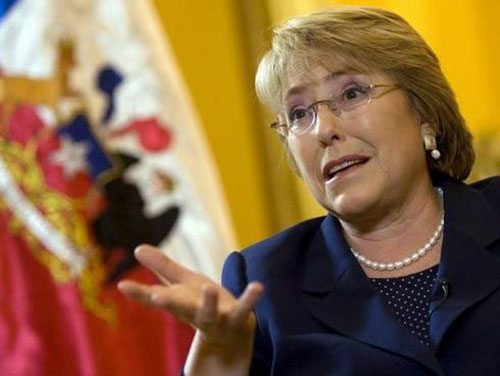.
SANTIAGO, Chile — What they’ll leave in and what they’ll leave out — that question haunts Margarita Iglesias as she considers this month’s opening of the Museum of Memory and Human Rights.
That Chile is recognizing victims of its military dictatorship in a striking new “monument to memories” is positive, said Iglesias, both a victim and a historian of Augusto Pinochet’s bloody 17-year rule. As a high-school student activist in Santiago in 1975, she was tortured before fleeing with her family to France.
The $19 million museum that opens in downtown Santiago on Jan. 11 is dedicated to the 31,000 murder, torture and kidnapping victims during the 1973-1990 military dictatorship of Gen. Pinochet. Museum directors are keeping a tight lid on the specific exhibits, hoping for maximum effect.
Designed by Brazilian architect Mario Figueroa, the block-like, three-story construction is sheathed in a striking green metallic screen of oxidized copper.
In addition to exhibits in its capacious hall, it will house a collection of photos, records and first-person chronicles by victims and their families, many of them wrenching accounts. UNESCO has distinguished these archives with its “Patrimony of Humanity” classification, meaning they are of global, historical or cultural value.
Opening Museum for the Victims of Pinochet’s US Sponsered Brutal Dictatorship
President Richard M Nixon and Henry A Kissinger, who served as his national security advisor and Secretary of State, supported a right-wing coup in Chile in the early 1970s, previously declassified documents show.
But many of the actions of the United States during the 1973 coup, and much of what American leaders and intelligence services did in liaison with the Pinochet government after it seized power, remain under the seal of national security. The secret files on the Pinochet regime are held by the CIA, the Defense Intelligence Agency, the State Department, the Pentagon, the National Security Council, the National Archives, the Presidential libraries of Gerald R Ford and Jimmy Carter, and other government agencies.
According to Justice Department records, these files contain a history of human rights abuses and international terrorism:
- In 1975 State Department officials in Chile protested the Pinochet regime’s record of killing and torture, filing dissents to American foreign policy with their superiors in Washington.
- The CIA has files on assassinations by the regime and the Chilean secret police. The intelligence agency also has records on Chile’s attempts to establish an international right-wing covert-action squad.
- The Ford Library contains many of Mr Kissinger’s secret files on Chile, which have never been made public.
War on Democracy – US backed 1973 coup in Chile
Chile has become the first South American country to be admitted into the Organisation for Economic Co-operation and Development (OECD).
Michelle Bachelet, Chile’s president, says entry into the group is a major stride towards joining the ranks of developed nations.
Chile has, in the last two decades, gone from being one of the poorest countries in Latin America to one of the richest.

Michelle Bachelet, Chile's president
Based in France, the OECD comprises 30 countries that promote principles of representative democracy and free-market economy. It traditionally includes rich and industrialised nations such as the US, Japan and South Korea.
In recent years, it has also made efforts to give entry to developing economies such as Mexico and Poland.
Membership – given to countries that meet certain political and economic requirements – allows member states to discuss and co-ordinate global social, environmental, and economic policies.
Al Jazeera’s Lucia Newman, reporting from Santiago, explains that Chile’s free market economy was one factor that helped it gain entry into the OECD.
“An economic powerhouse like Brazil, for example, doesn’t have such
an open economy and has many protectionist measures.”


